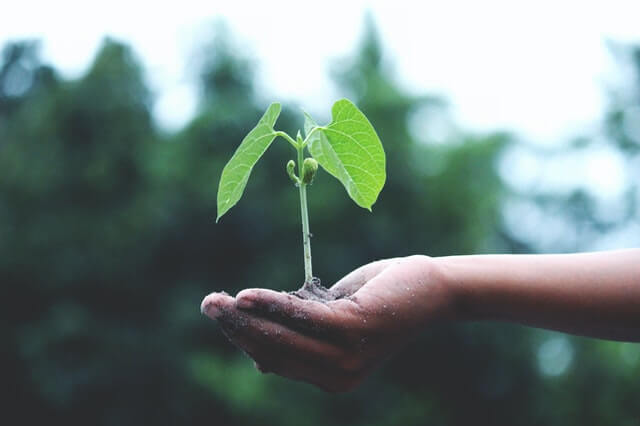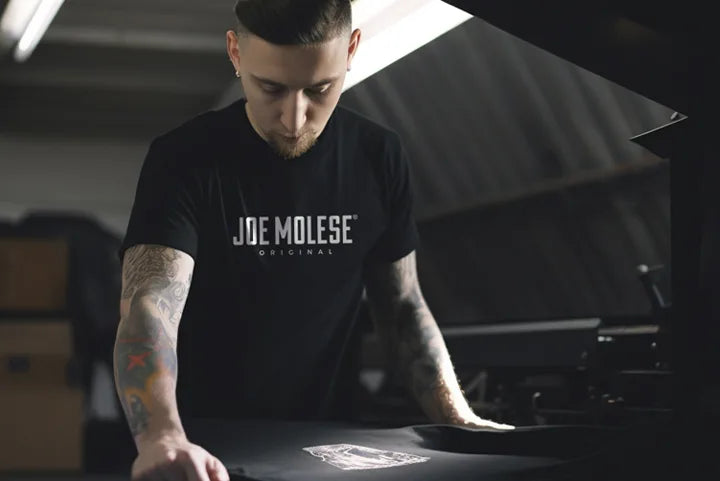
We only want to sell products of the highest quality to our customers. In this sense, the longevity of the products represents sustainability.
It is very important to us to take care of what is important to us. Be it the environment, animals, suppliers, employees, the community or our customers.
Stylish sustainability: Get our organically grown t-shirts and hoodies now and contribute to a better future
Hello, today I would like to introduce you to our new collection of sustainable t-shirts and hoodies. Our products are made from organically grown cotton and produced under fair trade conditions. This means that the farmers and workers involved receive a fair wage and safe working conditions.
But that's not all - we've also chosen to use biodegradable materials as well as our products to print inks free of toxic and animal ingredients (vegan) instead of using chemical and harmful processes. Our T-shirts and hoodies are therefore not only sustainably manufactured, but also environmentally friendly.
Not only that, we also attach great importance to design and quality. Our t-shirts and hoodies are comfortable and durable, so you'll enjoy them for a long time. You can be sure that you are making a good choice with one of our products.
- Biodegradable materials: Our T-shirts and Hoodies are made from natural materials such as cotton, which are biodegradable and environmentally friendly.
- Recycling: Some of our products are Made from recycled materials, which reduces waste and conserves resources.
- Ethical production conditions: Our t-shirts and hoodies are manufactured under ethical and fairly produced working conditions, which protects the rights of workers.
- Ecological standards: Our products meet high ecological standards, such as the use of natural colors, reduced chemicals and low CO2 pollution.
- Sustainable use of resources :Our T-shirts and hoodies support the sustainable use of resources and contribute to a sustainable future, for example through the use of water and energy.
Certified by the best - environmentally friendly and vegan clothing at a fair price
We source our raw textiles exclusively from certified manufacturers. This gives us the security that all standards for sustainable production of textiles are met.
So that we only produce the best products from the best raw materials We work closely with our manufacturers and suppliers.
Our manufacturers only use certified organic cotton, recycled polyester and other sustainable materials that do not harm people, animals or the environment.
Our aim is to produce environmentally friendly, socially and fair sustainable textiles. We want to keep our ecological footprint as small as possible and every link in the production chain should have safe and fair working conditions.
The printing inks are biodegradable and free of toxic and animal ingredients (vegan).
We want to be very transparent and offer high quality, vegan clothing. JOE MOLSE attaches great importance to the environmentally friendly production and procurement of textiles. We charge a fair price for everyone involved.
Our supply chain is certified by several independent bodies according to various standards. Each of these certifications proves that we are working at all stages to build healthy environmental practices and greater respect for the planet.
For greater transparency, all criteria, codes and standards of each certificate are listed here in the summary.

Fair Wear Foundation
The FWF is active in eleven production countries worldwide: Bangladesh, Bulgaria, China, India, Indonesia, Myanmar, Macedonia, Romania, Tunisia, Turkey and Vietnam . The FWF has local auditors and trainers in all countries who are in close contact with the foundation's headquarters in Amsterdam.
The FWF works with companies in the textile industry that are willing to take a fairer approach to producing their clothing. The FWF has over 80 member companies representing over 130 clothing brands from ten European countries. By joining the FWF as a member, a textile company undertakes to implement the eight FWF labor standards in the supply chain.
The FWF Code of Labor Practices and Employee Rights contains eight labor standards that are based on the conventions of the International Labor Organization ( ILO) and the Universal Declaration of Human Rights. These are:
- Free choice of job
- No discrimination in employment
- No exploitative child labor
- Freedom of assembly and the law to collective bargaining
- Payment of a living wage
- Limiting working hours
- Safe and healthy working conditions
- Legally binding employment contract
Oeko Tex Standard 100
Oeko-Tex is the brand name of a product label (textile seal) or a facility certification issued by the International Community for Research and Testing in the Field of Textile and Leather Ecology is awarded. Products at all processing stages along the textile value chain (fibers, yarns, fabrics, leather, finished end products) are tested for health safety and production facilities are tested for socially and environmentally compatible production conditions.
Textile products can only be tested in accordance with Standard 100 by Oeko-Tex if all of its components meet the required criteria. The scope and requirements of the pollutant tests depend on the intended use of a textile product. Accordingly, Standard 100 distinguishes between four product classes:
I – products for babies and small children (up to the age of 36 months)
II – products with skin contact
III – products without or . with only minimal skin contact
IV – Textile furnishing materials (e.g. curtains, tablecloths, carpets)
In product class I, stricter limit values apply to almost all potentially health-endangering substances, and the products are additionally tested for saliva fastness.
-

100% ZUFRIEDENHEITSGARANTIE
Unsere Zufriedenheitsgarantie gewährleistet ein unbeschwertes Einkaufserlebnis für dich. Es ist unser Ziel, unsere Kunden mit einem Lächeln im Gesicht zu sehen.
-

KOSTENLOSER VERSAND
Freue dich über unseren kostenlosen Versand innerhalb Deutschlands - unser Geschenk an dich für ein stressfreies Shopping-Erlebnis!
-

UNSER VERSPRECHEN
Unser Versprechen: Höchste Qualität. Jedes Produkt ist sorgfältig ausgewählt und nachhaltig hergestellt, um dir das beste Erlebnis zu bieten.











